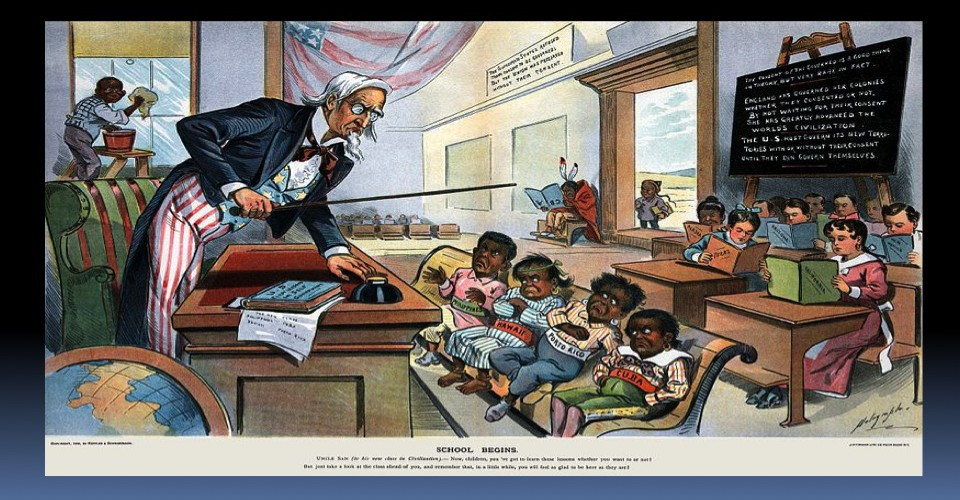"All that is good and correct must be objectively universal. Universality is not just another feature but a necessity of correctness. On the other hand, there are two enemies of the correct universal. First is seemingly correct Local and the other is Incorrect Universal".
Here, I am going to discuss if Decolonization, detaching oneself with the symbols and identities of Cultural Colonialism is possible or not.
In India, we see two strands of such thinkers who wish to have a mentality of decoloniality. One of these are those noble post-colonial thinkers, which includes Nivedita Menon, Partha Chatterjee, Dipesh Chakraborty etc. whom I have great respect. Another strand is the strand of revivalist right wingers, which includes RSS, Hindu Radicals and People like J Sai Deepak.
It is, as if, separating oneself with the history is even possible. We must realize that the myth of decoloniality is an urban myth. The rural India does not even know decoloniality. To be fair, they do not even know Colonization. For them, it was a continuance of an oppression with morphed ways. First, the ancient kings exploited the rural India, then came medieval Mughals, then amongst the Rural upper castes, and so much so, and at the end came a White man.
I have a vulgar example to explain this. This is horrible but required. Treat Rural India like an 8-year-old Girl and Urban India as a 16-year-Old Girl, both brutally raped, as a matter of fact, gangraped, which is appropriate example seeing a vast culture of gangrape in India, and now, when they both have grown up, on one hand, you see the older girl complaining, and wishing to return to the pre-rape era. For her, This, pre-rape era exists. But, that era does not exist for the younger girl, not because she is young but because even before all those men raped both of them, the older girl used to harass sexually the younger.
For the younger girl, unlike the older, this is a never-ending cycle of Penetration, inappropriate touching, violation of consent and above all, Patronization of justice. As if, The Urban India understands what the Rural India has gone through.
I claim, first of all, The Urban India here is all the Elites that were products of colonialism itself. Upper Caste Brown Men, with newly read Montesquieu and Rousseau. The Rural India has not read Rousseau till date. Not to say Rousseau was some great thinker. He was the bare minimum, although.
This Allegory of Gangrape is essential to explain the gravity of our predicament. I claim, Urban India wants to return to or if not return, detach oneself from the brutal memories of colonization because for them, it is possible to imagine a space detached from a significant part of history. Those who are Urban elites today, had Ancestors of rural Feudal lords. The rural India was Hell back then, it is just a hell with a new color of fire in it, White fire. In fact, it hurts less, lesser than the hurts of their own countrymen, controversial yet effective proposition, that an India, as it has today existed back in the medieval times. If it existed, it was shit of a place for the rural folks.
India was not a nation; its nationhood has attributes in the colonial legacy. It is in the rape that both the girls have grown up, and nothing more than the rape has contributions in constructing the identity of womanhood in the girls. I am not justifying here the rapes. Of course, I am against the brutality of colonialism, but we need to realize one thing, there was no body without the wound. The concept of wound created the concept of a woundless body.
Woundlessness is impossible I claim. History is history. In fact, to use the Vedantic jargon, do not get me wrong, I am not a revivalist of Vedantic tradition, but to use knowledge is not bad, the only woundless state possible is when you accept the wound as a permanent mark. Then it hurts less.
The problem with the first class of thinkers, The Post-colonials, is that they are reactionary to both the colonial thinkers and the Marxist thinkers. And somehow, they believe in the myth of Decoloniality. In this myth is implicit is the myth of a pre-colonial revivalism somewhere.
The point is not to separate the brutal of the cultural history from the better. I claim, the better of history seems better, only because there exists a brutal. A common man like Gandhi, seems special only because there was the beast of colonialism to be fought. Otherwise, the kind of Philosophies India had, you can still find Gandhi at every nook and corner of this country. The reason Gandhi does not impress me, and to some extent he does as well, is first of all, he is unoriginal, whatever he represents, in him, I claim, is all that is there in the Hindu, Jain and Buddhist traditions, what is good in Gandhi, is what I say is a western attribute. The fearlessness of Gandhi comes from the ideas of honesty, etc. which he takes inspiration from Tolstoy, Ruskin etc. I understand that these are universal ethos that exists in every culture including that in India's, but one thing is imperative, you need to see those values in action to opt them. West was a place not only of brutal colonialism and Enlightenment and a sense of civilization mission, but it was also a place of people awakening to the values of Individuality, Freedom, and rights.
There for the first time in history, we see these ideas in action. On the other hand, we see in India, which we call land of spiritual ideas, a dearth of action of ideas because of the Intellectual Hegemony of Brahmins who concentrated ideas to themselves and propagated the ideas of I claim, the worst kind of humanity possible, "The casted Humanity", that idea that Human beings in order to live, must live in a graded unequal fashion. The Philosophy of Caste, I claim, is the sole original Idea of India, not because we did not have a tradition of Vedanta, or Buddhism. I claim, what good are noble ideas, when the sole ideas in action were Casteism and Feudalism.
This notion of Ideas in action as true test for what existed and what was mythical is very essential to remind us of which glorious past are we talking about. There are ideas in action and then there are mythical ideas that we propound to feel good about ourselves. It is like a student who makes a very tight schedule to study, like 12 hours a day, but studies only for 2. The schedule is there to feel good about oneself.
We need a separate development on the notion of mythical ideas. One such idea is that written in Upanishads, "Vasudev Kutumbkam", or the whole world is a family. No doubt, the one who wrote it, felt something, he was not hypocritical. But This is there today, for us, just as a showpiece, to feel good. Nobody in India, really believes in this. On one hand, this was taken as the theme of the G20 summit that happened in India, on other hand, some years back, we heard, I think the Chief of Defense Staff of India, say, "It was foolish Idea, the world is not my family".
To which people can say, he is a defense personnel, of course, he will say that. I claim, no, this is what India really is. It is not a welcoming place to the world. It is now a land of insecure people, who believe in a parochial vision of nationhood, thanks to Colonialism, the brutal cultural and economic rape.
So, key takeaways, first, the wound creates the myth of woundlessness, there was never, at least in the near past, a woundless state.
Second, to maintain this myth, we create mythical ideas, or so to speak, we revive mythical ideas, like a mythical beast, which acts as a soundproof of our glorious past, which is all fake. The true past can be seen in the Ideas in action, not in the Mythical ideas, we create to feel good about ourselves. Vedantic tradition is this sense is Vendetta tradition, Buddhism is dumbism.
Lastly, the only way to decolonize, is no way to put it in a Buddhist fashion. Or to put it Vedantically, the only way is to accept colonialism as a brutal reality and a non-detachable part of history. By non-detachable, I do not mean, attach yourself to it, I mean, exactly what I write, a Hegelian negation of negation, non-de-attachable.
I will develop more on the mythical Ideas later.





